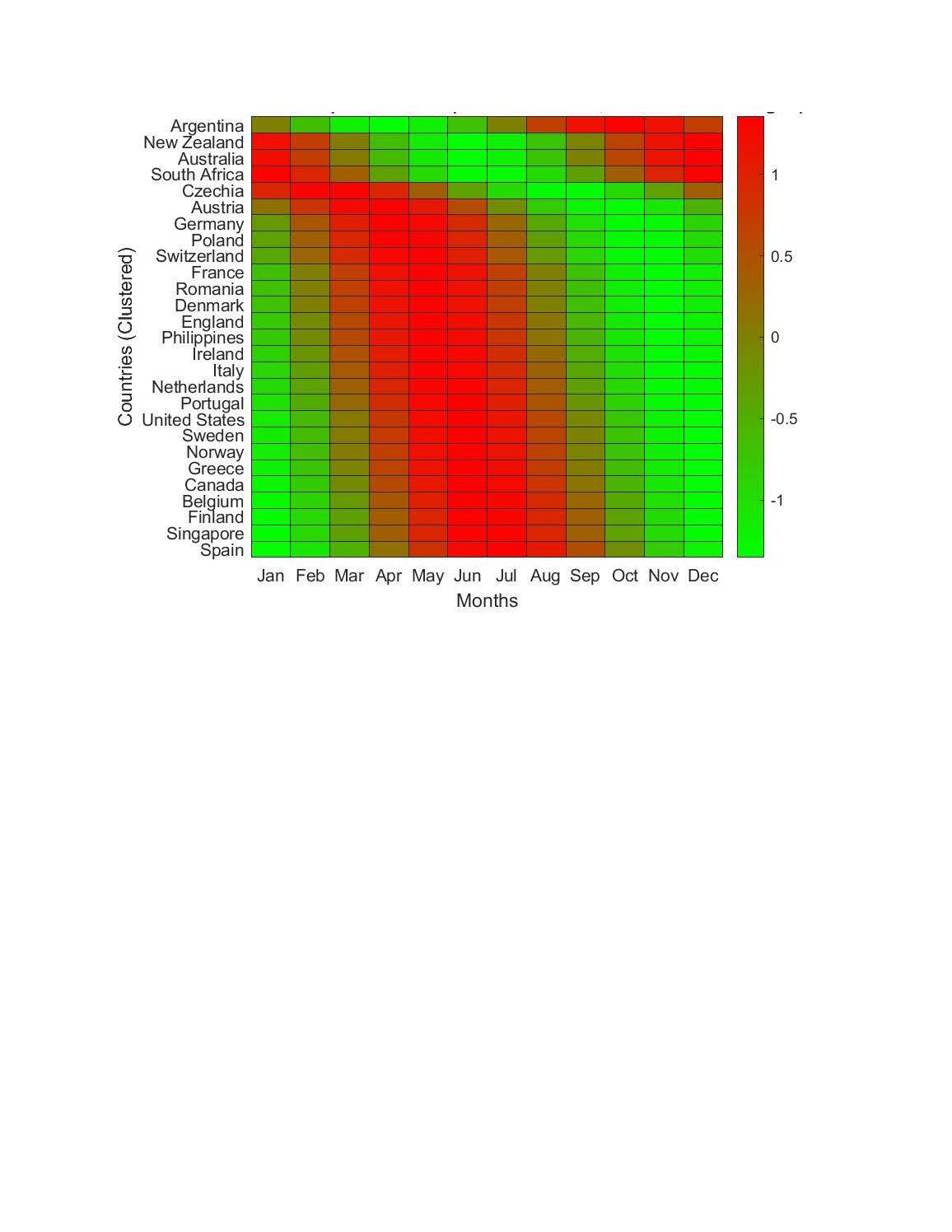Session Information
Session Type: Poster Session B
Session Time: 10:30AM-12:30PM
Background/Purpose: Understanding public interest in gout, as reflected by online behavior, can offer valuable insights into its perception and management. Infodemiology, which examines the distribution and determinants of information on the internet, offers insights into public health trends that are often challenging to capture through traditional epidemiological methods. This approach is especially relevant for analyzing interest patterns over time and across different regions.Our objective was to explore whether public interest in gout, as measured by Google Trends data, shows seasonal patterns across countries, US states, and major metropolitan areas.
Methods: This study utilizes Google Trends data from January 1, 2014, to October 1, 2024, to analyze the frequency of gout-related search queries. Data were collected from 70 countries, 50 US states, and 36 major cities in the US and Canada. The analysis included both direct searches for “gout” and searches based on symptoms and covered queries in multiple languages. The primary outcome was the seasonal variation in gout-related search queries, measured using a cosinor model to identify cyclic patterns in search behavior throughout the year. The secondary outcome assessed the influence of language-specific search terms on the seasonality of these queries.
Results: The analysis showed significant seasonal variation in gout-related search interest in 40 US states and 20 of the 70 countries analyzed, with peaks in the late spring/early summer for the Northern Hemisphere and corresponding shifts in the Southern Hemisphere (Figures 1 and 2). Symptom-based queries also displayed strong seasonality, aligning with known clinical patterns of gout flares. Using language-specific search terms further refined the detection of seasonal patterns, strengthening the findings.
Conclusion: Public interest in gout, as reflected by Google search behavior, follows a clear seasonal pattern, mirroring the clinical seasonality of gout flares. This study highlights the utility of infodemiology as a supplementary tool for understanding public behavior and informing health communication strategies. Accounting for linguistic nuances enhances the precision of seasonality analysis, offering valuable insights for public health initiatives to improve disease management and patient education.
Frequency of query distribution using language-specific terms for “gout” across the globe. A clear separation between countries in the northern and the southern hemispheres was noted.
Typical monthly distribution of “gout” Google queries in Australia (AU), Canada (CA), and Hong Kong (HK). The presence of “***” indicates a statistically significant pattern in queries throughout the year (p_val < 0.01).
To cite this abstract in AMA style:
Schlesinger N, Androulakis I. Seasonal Variation in Public Interest in Gout Made More Crystal-Clear: A Longitudinal Infodemiology Study Using Google Trends. [abstract]. Arthritis Rheumatol. 2025; 77 (suppl 9). https://acrabstracts.org/abstract/seasonal-variation-in-public-interest-in-gout-made-more-crystal-clear-a-longitudinal-infodemiology-study-using-google-trends/. Accessed .« Back to ACR Convergence 2025
ACR Meeting Abstracts - https://acrabstracts.org/abstract/seasonal-variation-in-public-interest-in-gout-made-more-crystal-clear-a-longitudinal-infodemiology-study-using-google-trends/


.jpg)